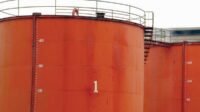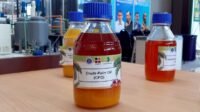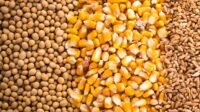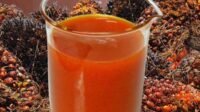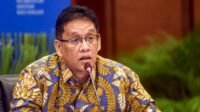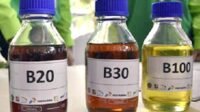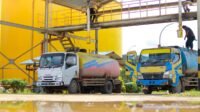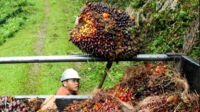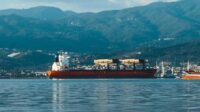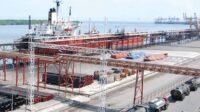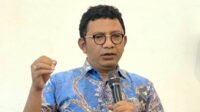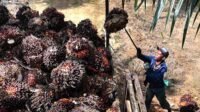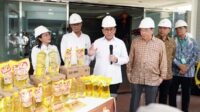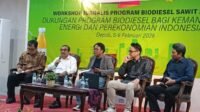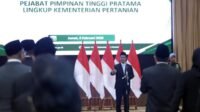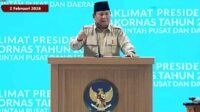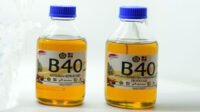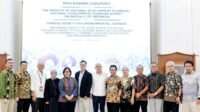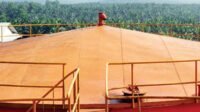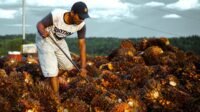PALMOILMAGAZINE, JAKARTA — Indonesia’s Ministry of Trade emphasized that the palm oil export levy policy is primarily designed to encourage the development of higher value-added products.
Wijayanto, Director of Agricultural and Forestry Product Exports at the Ministry, explained that the levy mechanism, regulated under the Ministry of Finance, should not be seen merely as a burden for exporters but as part of the country’s broader downstreaming strategy.
“This levy is intended to ensure that businesses don’t only export raw materials but also invest in developing palm oil derivatives with greater added value,” Wijayanto said during an online discussion attended by Palmoilmagazine.com on Monday (Sept 22, 2025).
Also Read: Indonesia’s CPO Reference Price Climbs in September, Export Duty Set at 10%
He further noted that funds collected through the levy are allocated to support strategic programs across the palm oil sector—from improving productivity and strengthening smallholder capacity to advancing the sustainability of the national palm oil industry. “The government views export levies not just as a fiscal instrument, but also as a development tool,” he added.
Through this policy, the government expects Indonesia’s palm oil industry to evolve beyond being a global supplier of raw materials and instead enhance its competitiveness through product diversification, market expansion, and stronger contributions to the domestic economy. (P2)



